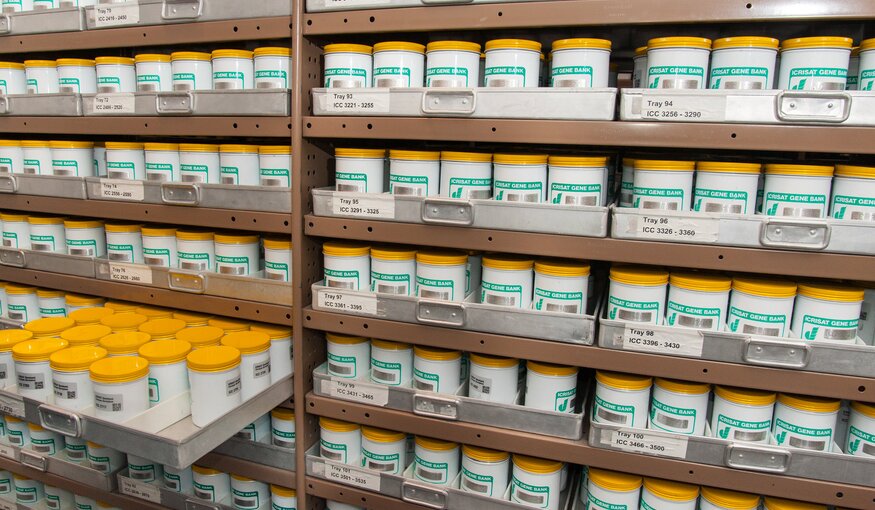Chatham House Dialogue
Crop Diversity for Challenging Times: the Role of Genebanks in Sustainable Development
Digital event: 21, 22, 23 September 2020
Objectives and Outputs
The Dialogue will comprise three separate sessions that will aim to build a...

Crop Diversity for Challenging Times: the Role of Genebanks in Sustainable Development
Digital event: 21, 22, 23 September 2020
Objectives and Outputs
The Dialogue will comprise three separate sessions that will aim to build a vision of how genebanks can play a fuller and more effective role in helping agriculture meet future challenges. Special attention will be paid to the evolving role of the international genebanks managed by the CGIAR. The key findings and recommendations of the dialogue will be written up as a brief statement and, together with background documents prepared for the Dialogue, will be used as the basis for a System level review of CGIAR genebank costs and operations (GCO review), as well as for relevant discussions concerning ‘One CGIAR’, the Plant Treaty Governing Body, and for consideration by the Crop Trust Executive Board.
Session Structure
The three discussion sessions will take place virtually on 21, 22, 23 September.
Session 1 - 21 September
Paper presentation: How may food systems evolve: looking ahead in an uncertain world (Prof Tim Benton, Chatham House)
Breakout session: What are the consequences of the future scenarios for supply of, and demand for, crop diversity?
Session 2 - 22 September
Paper presentation: Scope and roles of the CGIAR genebanks: 2030 vision (Ruaraidh Sackville Hamilton, GCO Panel member)
Breakout session: Where along the continuum from "freezer to fork" do you think genebanks of the future should focus their efforts for maximum impact? How is it different from what they are doing now?
Session 3 - 23 September
Review of discussions and outcomes of previous two sessions
Breakout session: What should the CGIAR do more of or less of to ensure that the international genebanks remain relevant and effective given the scenarios and need for crop diversity (Session 1) and the view on where they might have maximum impact (Session 2)?
Background
We are entering a period of increasing environmental unpredictability, socio-economic instability and political uncertainty. Looking a decade into the future, we might foresee continued erosion of biodiversity globally, coupled with new crises – climatic shocks and tipping points, pandemics, financial and trade crises and national and international political manouvering – playing havoc with food security and human welfare. What do trends such as these mean for the collective need to conserve shared resources such as crop genetic diversity, which are both threatened by these developments and could help alleviate them?
Current and future breeders, researchers, farmers, and consumers will need to have at their disposal the widest possible range of crops and crop varieties with diverse traits. Developing and making available such varieties represents a critically important challenge. Traditionally, breeding is expensive and slow, requiring years of investment to develop a new variety. Modern technologies, however, are already significantly speeding up the breeding process and opening up new avenues for identifying and deploying genes.
Genebanks around the world play a key role in conserving genetic diversity and making it available to breeders and others. Advanced genetic, digital and other technologies offer exciting opportunities for using the limited financial and human resources available to genebanks more efficiently and effectively. Who will have access to these technologies and how will the benefits from such developments be shared? Scaling collaboration up and out and strengthening complementary roles among international and national institutes, universities and communities are critical. How can international genebanks evolve so that they contribute more fully to modern crop improvement and enable and help support access and benefit sharing.
In order to address such issues, the Crop Trust, together with CGIAR, the Plant Treaty and Chatham House are convening a facilitated on-line dialogue among experts in relevant fields.

Categories: Genebanks, Genebank Platform
